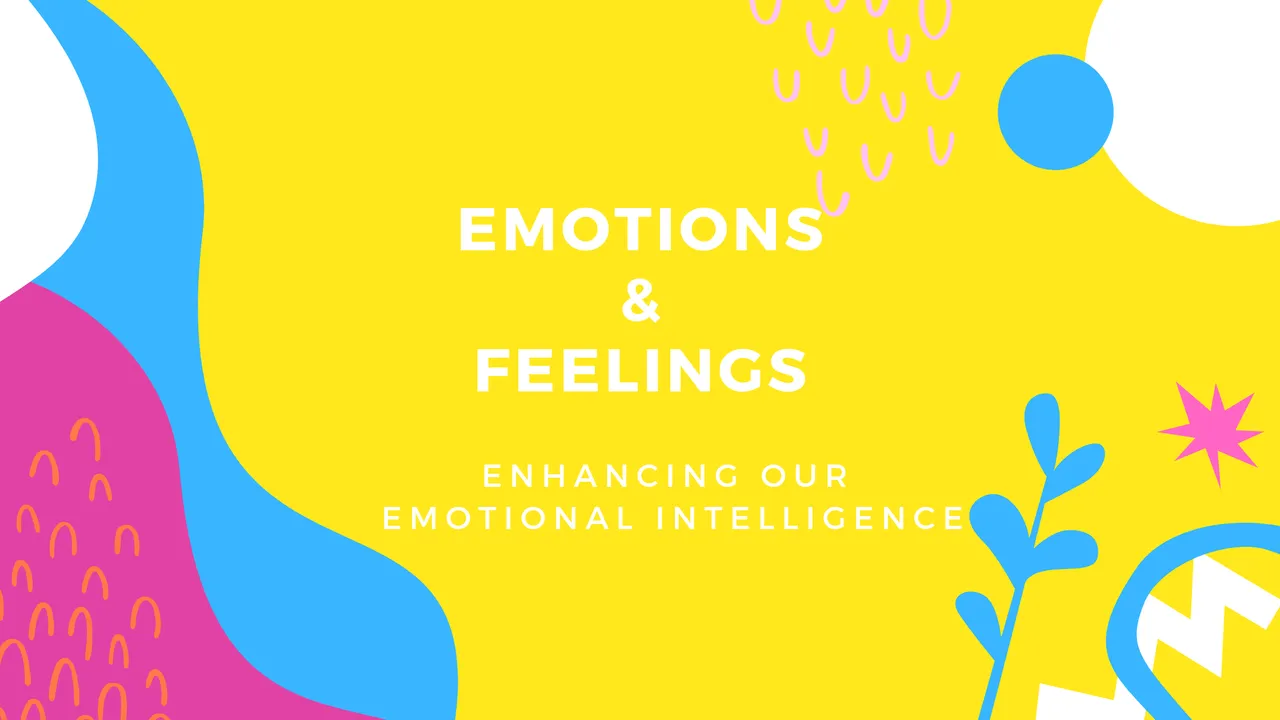BOREDOM - Theme of the month // ABURRIMIENTO - Tema del mes [ENG-ESP]

What would you say to someone if they said to you: "I'm bored "? Your response will probably vary depending on who says it to you. We wouldn't respond to our child the same way we would respond to an adult. Wait a minute! Can adults be bored? Is leading busy lives the solution? Please join us for this entire post.

¿Qué le dirías a alguien si te dice: "Estoy aburrido"? Probablemente tu respuesta varíe dependiendo de quién te lo diga. No le responderíamos a nuestro hijo igual que le responderíamos a un adulto. ¡Un momento! ¿Pueden los adultos aburrirse? ¿Es la solución llevar vidas muy ocupadas? Ten la bondad de acompañarnos en todo éste post.

What is boredom?
It is a feeling that something is missing, such as some stimulus; dissatisfaction, dissatisfaction, dissatisfaction with how we are in the present, causing a lack of interest in what we have around us, in what we are asked to do or what we should do.
How it manifests itself:
A feeling that time passes slowly: When performing common tasks it feels as if their duration is eternal, that it will never end.
Not finding meaning in activities: We underestimate the usefulness, usefulness or practicality of what we are doing or plan to do. The question is asked: *"What am I going to do that for?
Isolating oneself: The bored person may withdraw from others, finding no interest in what is being done, listened to, talked about, etc.
Shutting up: It doesn't matter if they listen to me or not.
Sleeping a lot: As a way of avoiding boredom, or a very great disinterest.
¿Qué es el aburrimiento?
Es un sentimiento de que nos hace falta algo, como algún estímulo; insatisfacción, inconformidad por cómo estamos en el presente, ocasionando un desinterés en lo que tenemos alrededor, en lo que se nos pide o debemos hacer.
Cómo se manifiesta:
Una sensación de que el tiempo pasa lento: Al realizar tareas comunes se siente como si su duración fuera eterna, que no fuera a terminar nunca.
No encontrar sentido a las actividades: Desestimamos lo útil, provechoso o práctico de lo que estamos haciendo o pensamos hacer. Se pregunta: "¿Para qué voy a hacer eso?"
Aislarse: La persona aburrida puede apartarse de otros, por no hallar interés en lo que se está haciendo, escuchando, hablando, etc.
Callarse: Da lo mismo si me escuchan o no.
Dormir mucho: Como forma de evadir el aburrimiento, o un desinterés muy grande.

Is boredom only for some people?
Remember the question at the beginning? Perhaps many of us could imagine a child with a clenched fist placed under his cheek to hold his head, eyes half open and maybe even yawning, saying: *"I'm bored." And if he was sitting, maybe we saw him moving one foot back and forth, or tapping his foot on the chair. No doubt many mothers don't like to hear that, and the responses can be varied. Many children tend to get bored because of the demand for stimulation that they may feel at times, and when they don't have it, they get into that state.
However, this is not only a matter of infants. Many studies show that adults also tend to get bored, and very much so. They get bored with their jobs, falling into a routine that no longer brings them satisfaction, and they may express dissatisfaction with their position, their salary, their workplace... and become disinterested. They get bored of their relationship with their partner, since they consider that they already know everything and make little effort to do new and exciting things together. They get bored with the place where they live, from their home to their city, they think they know practically everything and they feel that they can no longer satisfy them as they used to.
And do the rich get bored? Of course they do! Quite a few come to feel dissatisfied despite having many possessions. And that leads them to try to experiment with other things in order to fill the emptiness they feel, sometimes in a way that is detrimental to them.
¿Es el aburrimiento sólo para algunos?
¿Recuerdas la pregunta del principio? Quizás muchos pudimos imaginarnos a un niño con el puño cerrado puesto debajo de su mejilla para sostener su cabeza, con los ojos a medio abrir y quizás hasta bostezando, diciendo: "Estoy aburrido". Y si estaba sentado, tal vez lo vimos moviendo un pie hacia adelante y hacia atrás, o golpeando la silla con su pie. Sin duda, muchas madres no les gusta escuchar eso, y las respuestas pueden ser diversas. Muchos niños suelen aburrirse por esa demanda de estímulos que pueden sentir en ocasiones, y al no tenerlos, entran en ése estado.
Sin embargo, esto no es asunto sólo de los infantes. Muchos estudios demuestran de que los adultos también suelen aburrirse, y mucho. Se aburren de sus trabajos, cayendo en una rutina que ya no les reporta satisfacción, y pueden manifestar inconformidad con su puesto, su sueldo, su lugar de trabajo... y caen en el desinterés. Se aburren de su relación de pareja, en vista que consideran que ya conocen todo y poco se esfuerzan por hacer cosas nuevas y emocionantes juntos. Se aburren del lugar donde viven, desde su casa hasta su ciudad, creen conocer prácticamente todo el sitio y les parece que ya no pueden satisfacerlos como antes.
¿Y los ricos se aburren? ¡Por supuesto que sí! No pocos llegan a sentirse insatisfechos a pesar de tener muchas posesiones. Y eso los lleva a tratar de experimentar con otras cosas a fin de buscar llenar ese vacío que sienten, a veces de una forma que les perjudica.

What are the consequences of boredom?
It can affect your learning and school grades. In addition, he is prone to not finishing the tasks assigned to him or affecting the quality of finishes and details. On a small scale, an individual can create habits that harm their physical health (such as eating disorders), their mental health (depression, sadness, difficulty relating to others) and their morale (accessing inappropriate entertainment). And on a larger scale, many have been known to consume illicit substances, abuse alcoholic beverages and engage in criminal acts. Yes, boredom (along with other emotions and feelings) often drives some to behave in this way.
This is the theme of the month! Now we want you to express yourselves. Share in written or video form your anecdotes, deep reflections, children's stories, real or fictitious stories, fables or even images telling us about BOREDOM. Remember that it will be very important that you follow the simple rules of the community. In this case, write the word of this feeling at the beginning of the title you chose for your post Use the tag EMOTIONALINTELLIGENCE and BOREDOM, which is the theme of the month. We will be reading all of them. We want the curation reports to be full of quality, unpublished material that will help us draw this theme. This is not a contest.
Of course, during the month you can post about another feeling or emotion, as long as you write it first in the title of your post. This way you will comply with the community rule.
¿Cuáles son las consecuencias del aburrimiento?
Puede afectar su aprendizaje y calificaciones escolares. Además, es propenso a no terminar las tareas que se le asigna o afectar la calidad de los acabados y detalles. A pequeña escala, un individuo puede crear hábitos que le perjudiquen su salud física (como desordenes alimenticios), su salud mental (depresión, tristeza, dificultad para relacionarse con otros) y su moral (accediendo a entretenimiento inadecuado). Y a gran escala, es sabido que varios llegan a consumir sustancias ilícitas, abusar de las bebidas alcohólicas e involucrarse en actos delictivos. Sí, muchas veces el aburrimiento (junto con otras emociones y sentimientos) llega a empujar a algunos a comportarse de esa forma.
¡Este es el tema del mes! Ahora queremos que ustedes se expresen. Compartan de forma escrita o en video sus anécdotas, profundas reflexiones, cuentos infantiles, historias reales o ficticias, fábulas o hasta imágenes hablándonos sobre el ABURRIMIENTO. Recuerda que será muy importante que sigas las sencillas reglas de la comunidad. En éste caso, escribe la palabra de este sentimiento al principio del título que elegiste para tu post. Usa la etiqueta INTELIGENCIAEMOCIONAL y ABURRIMIENTO, que es el tema del mes. Estaremos leyendo todos ellos. Deseamos que los reportes de curación estén llenos de material de calidad, inédito, que nos ayuden a dibujar este tema. Éste no es un concurso
Por supuesto, durante el mes se puede publicar acerca de otro sentimiento o emoción, siempre y cuando lo escribas de primero en el título de tu post. Así cumplirás la con la regla de la comunidad.

El logo es creación propia. Banner creado en Canvas
SOURCES / FUENTES
Imagenes:
1